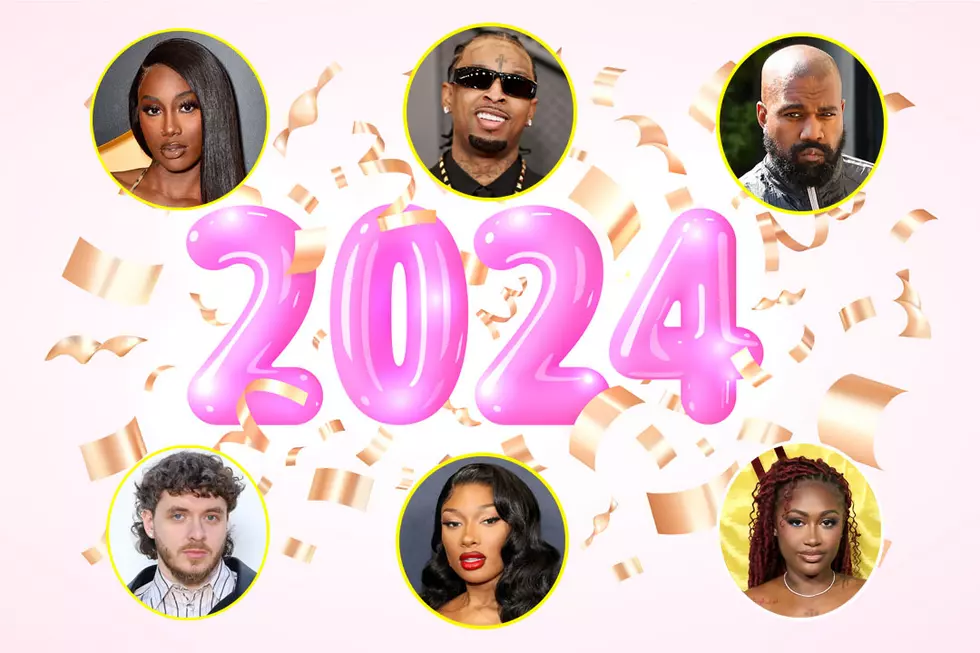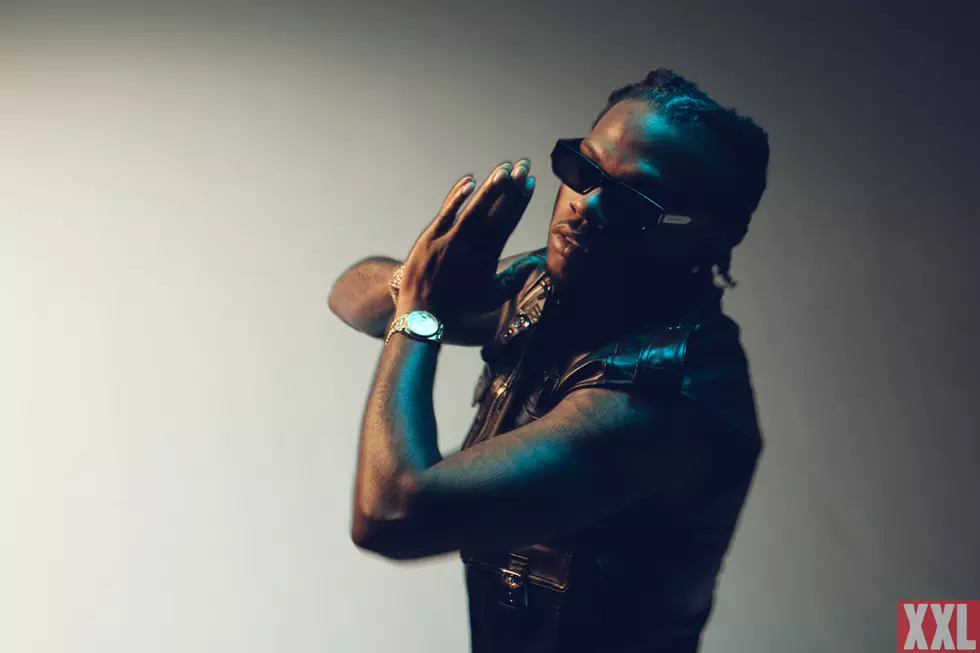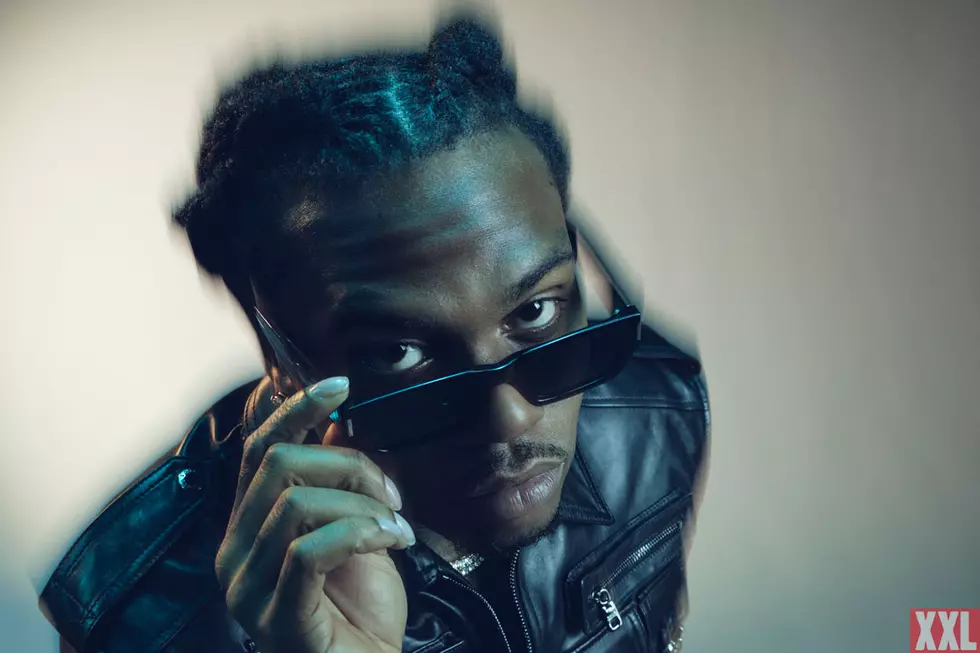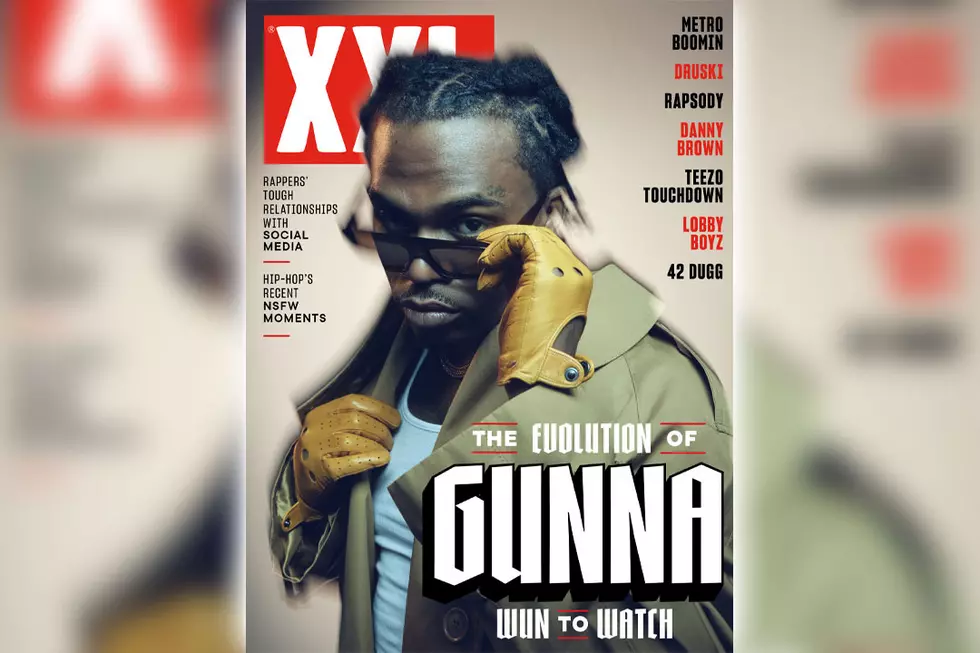Hip-Hop Cop
Way I Be Leanin’
Interview: Keith Murphy
Images: Steven Brahms

"You can’t see it with all this scaffolding, but this is where it all took place." On an unseasonably warm February evening, former police detective Derrick Parker points to a construction site on 43rd Street in Midtown Manhattan. Six years ago, this was the Kit Kat Club, a place that achieved infamy when Brooklyn rhyme deity Jay-Z stabbed rap-industry vet Lance “Un” Rivera over an alleged album-bootlegging dispute. For Parker, it was just one of the many cases he investigated during his years heading up the NYPD’s hip-hop intelligence unit. The former narcotics detective and cold case squad member established the covert unit in 1999 at the request of superiors concerned with the escalation of hip-hop–related crimes.
During his night with XXL, the wide-bodied, 6’3” Parker leads a tour of sites where rap history and criminal lure intersect. Two blocks west of the Kit Kat, there’s Club New York, where less than a month after the Jay-Z incident, Sean “Puffy” Combs, his girlfriend Jennifer Lopez and the young rapper Shyne found themselves embroiled in a shoot-out that became front-page news. There’s the Fort Greene, Brooklyn, mural of the feared gunman Killer Ben, who was murdered following an alleged robbery of a friend of the Notorious B.I.G.’s. From the episodes at the Kit Kat Club and Club New York to the February, 2001 shooting outside New York radio station Hot 97 that eventually led to Lil’ Kim’s perjury conviction to the still-unsolved murder cases of Tupac Shakur and Biggie, Parker has worked a long string of rap-connected police cases. He created the NYPD’s top-secret “Hip-Hop Binder”—a dossier containing the arrest records of everyone from Jay-Z, 50 Cent and DMX to Lil’ Kim, Fabolous and Busta Rhymes—and frequently consulted for other cities on out-of-state cases.
While he found the work rewarding, his position was challenging on many levels. An avowed hip-hop head, Parker eventually became disillusioned with the police department’s policies. He quit in 2002, and now works as a private investigator for Styles Security—often consulting for the same rap stars he once investigated.
Parker details his experiences leading the hip-hop intel squad in his book, Notorious C.O.P.: The Inside Story of the Tupac, Biggie and Jam Master Jay Investigations from NYPD’s First “Hip-Hop Cop,” due in July from St. Martin’s Press. “I was closing cases left and right,” he says, of his time on the force. “But I always had my eye on what was going on in the rap community, because this was the music I came up with.”
 You were on the police force for 20 years before being assigned specifically to rap-related cases. How did the hip-hop intelligence unit come about?
You were on the police force for 20 years before being assigned specifically to rap-related cases. How did the hip-hop intelligence unit come about?
Well, you have to go back to the beginning. The first event that opened my eyes was the Quad Studios shooting of Tupac Shakur [in 1994]. That incident and the [subsequent] murders of Tupac and the Notorious B.I.G. started to get the NYPD worried about a possible rap war. And they needed someone that had firsthand knowledge of the hip-hop industry.
What was your connection with the hip-hop industry before you headed the rap intelligence unit?
I used to work as a [music] promoter. I would go to music conventions like Jack the Rapper and network with people from the hip-hop scene. This is the music that I grew up on, and I love and respect this culture. So I was just trying to help the police brass understand the industry, which led to the formation of the rap unit.
Did you face added scrutiny from any of your superiors because of your past connections with the music industry?
When I first went into intel, I would get the question: “Derrick, you used to promote and do a couple of things in music. We are concerned with you going into this unit.” And I would just say, “Let me explain something to you. Have you ever doubted my integrity since I’ve been at this job?” The department knew I was a straightlaced guy. If you look at my record while I was there, you will see nothing but exemplary marks.
You created the infamous “Hip-Hop Binder,” which includes the police records of everyone from 50 Cent to Lil’ Kim. The NYPD’s critics charge that the rap intelligence unit is committing something analogous to racial profiling—hip-hop profiling.
The Binder wasn’t supposed to be used in that way. After the Hot 97 radio shooting [involving the crews of Lil’ Kim and her rival Foxy Brown], the chief of the detectives wanted the Binder disseminated to a lot of the different commanders so they could understand what was going on. There was some talk that the Hot 97 incident was part of a rap war, which was just a ridiculous theory, and I was out to dispel that.
For a long time the NYPD officially denied the existence of the Binder. It seemed like they had something to hide.
In the intelligence division I headed, when you do covert activity, it’s not really supposed to be made public. This is for everyone’s safety. They used to do this type of intel work on the Mafia family, the Chinese gangs and the BLA [Black Liberation Army]. But, again, I wasn’t too happy about how the Binder was being used.
Does the NYPD equate the rap industry with the Mafia?
It comes down to not understanding the culture. But the hip-hop industry is not making it easy for itself with the whole “Stop Snitching” thing. When the authorities see rappers who are not cooperating with the police and they see all these shootings and homicides, to them, that borders on organized crime.
Continue reading this feature in the June 2006 issue of XXL (#81).
More From XXL









